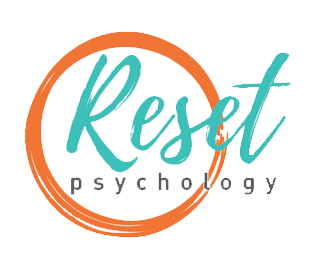Depression Doesn’t Discriminate

Anger Management
August 12, 2021
Who sees a psychologist?
August 12, 2021Depression Doesn’t Discriminate – This week we wake up once again to hear the news of a celebrity taking their life. And it can be difficult for us to understand. From designer Kate Spade, to DJ Avicii, to the much loved actor Robin Williams, it can be hard to figure out why those, who we feel have everything and must be on top of the world, can make such a devastating decision.
The crux of the issue is that depression doesn’t discriminate. Depression is a condition which has negative effects on our mental health. Symptoms of depression include feelings of sadness and being teary, lack of motivation, poor concentration, feelings of worthlessness and guilt and feeling a sense of being tired and lethargic.
The negative thoughts associated with depression can often become overwhelming when experienced in conjunction with the other symptoms. Common thoughts include feelings of being a failure, feeling that nothing good ever happens, and sometimes even a sense that nothing good will happen, which can influence feelings about the future.
There is no one specific cause for depression, but we do know that a number of things can influence its development. These can include personal factors, experiences and events, rather than one specific point in time. Family history is a risk factor, although not necessarily a cause. Drug and alcohol use can also influence the trajectory of depression.
The thing with depression is that while there are a number of common symptoms, it does not present the same way in each person. And depression doesn’t discriminate. Age, religion, gender, lifestyle and even wealth and fame offer no barriers against where depression will rear its ugly head. We do know however that depression can respond to treatment.
People can recover and remain well after a bout of depression. Treatment can include psychological therapy with a qualified psychologist or counsellor. For some, medication prescribed by a GP or psychiatrist can also assist.
If you know someone who is depressed, then encouraging them to seek support is a good place to start. Asking if someone is OK can make a world of difference to someone who is feeling disconnected.
For more information Beyond Blue (https://www.beyondblue.org.au/) has a depression checklist that can be completed. If you are having a tough time and need someone to talk to, book in to see your local GP, make an appointment with a psychologist.
If you need to speak to someone now, contact Lifeline in 13 11 14, or at www.lifeline.org.au.
The crux of the issue is that depression doesn’t discriminate. Depression is a condition which has negative effects on our mental health. Symptoms of depression include feelings of sadness and being teary, lack of motivation, poor concentration, feelings of worthlessness and guilt and feeling a sense of being tired and lethargic.
The negative thoughts associated with depression can often become overwhelming when experienced in conjunction with the other symptoms. Common thoughts include feelings of being a failure, feeling that nothing good ever happens, and sometimes even a sense that nothing good will happen, which can influence feelings about the future.
There is no one specific cause for depression, but we do know that a number of things can influence its development. These can include personal factors, experiences and events, rather than one specific point in time. Family history is a risk factor, although not necessarily a cause. Drug and alcohol use can also influence the trajectory of depression.
The thing with depression is that while there are a number of common symptoms, it does not present the same way in each person. And depression doesn’t discriminate. Age, religion, gender, lifestyle and even wealth and fame offer no barriers against where depression will rear its ugly head. We do know however that depression can respond to treatment.
People can recover and remain well after a bout of depression. Treatment can include psychological therapy with a qualified psychologist or counsellor. For some, medication prescribed by a GP or psychiatrist can also assist.
If you know someone who is depressed, then encouraging them to seek support is a good place to start. Asking if someone is OK can make a world of difference to someone who is feeling disconnected.
For more information Beyond Blue (https://www.beyondblue.org.au/) has a depression checklist that can be completed. If you are having a tough time and need someone to talk to, book in to see your local GP, make an appointment with a psychologist.
If you need to speak to someone now, contact Lifeline in 13 11 14, or at www.lifeline.org.au.





